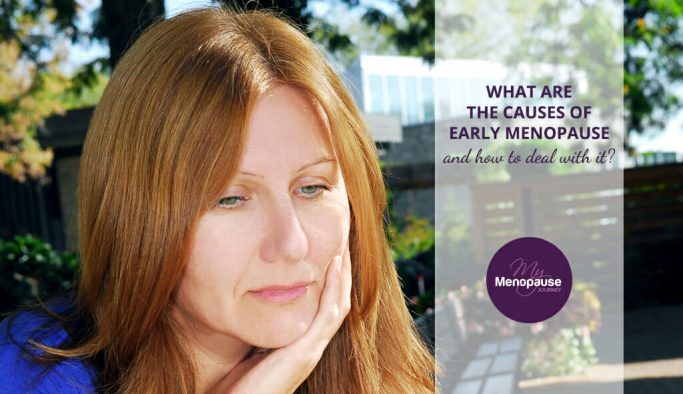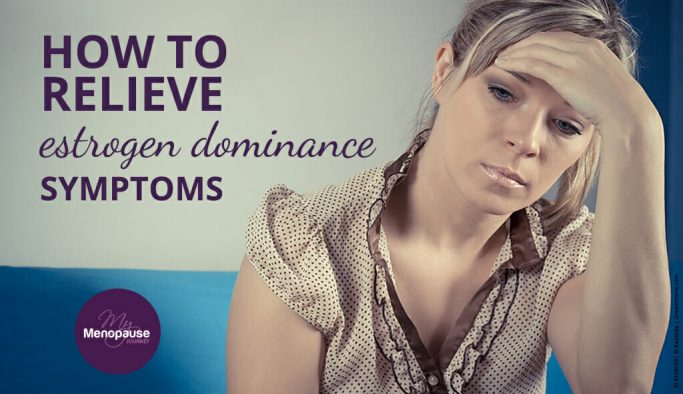Imagine after years of a fulfilling relationship, you suddenly find yourself having discomforts during intimate moments with your partner.
You might be thinking, “What happened to the spark we used to have?” or “Is something wrong with me? Am I alone in this?”
But hey, before those thoughts grow bigger, let me tell you: You’re not alone in this!
As we journey through midlife, it’s common to feel some unexpected changes in our body — especially when it comes to our vaginal health. The natural decline in our hormones can lead to dryness and many other challenges. And yes, they can truly leave us feeling frustrated or confused!
So, why don’t we dive into hormones, dryness and how to keep the flame alive? After all, every journey has its bumps, but it’s how we navigate them that makes the experience worthwhile. Time to put love back in the air!


- Vaginal Dryness: Is It Normal for Midlife Women?
- The Role of Hormones and How the Decline Affects Your Vaginal Health
- 9 Effective Ways to Stop Vaginal Dryness and Embrace Intimacy Again!
- 1. Eat foods that naturally promote vaginal lubrication!
- 2. Hydrate!
- 3. Take some time to relax and recover!
- 4. Get moving with light exercises!
- 5. Choose the right feminine products!
- 6. Use vaginal lubricants!
- 7. Support other estrogen-producing organs!
- 8. Try estrogen creams, pills or rings!
- 9. Talk with your partner!
- Aphrodisiacs: Do They Really Work?
- Why Sex “Still” Matters in Midlife: The Benefits of Intimacy and Romance
Vaginal Dryness: Is It Normal for Midlife Women?
Vaginal dryness is a common concern for many women during midlife. It can occur mainly due to declining estrogen levels, diet, lifestyle factors, stress or underlying health conditions. The dryness also varies in severity and may be accompanied by other symptoms — such as itching and pain during intercourse.
According to the National Institutes of Health, vaginal discomfort is one of women’s common experiences in menopause. Of course, it can happen at any age (depending on the root cause), but experts say midlife women are more prone to it — due to the natural decrease in hormonal levels while aging.
In fact, about 50% of women experience it. And yup, it’s low estrogen that’s usually causing all the fuss!
Dryness is the effect when the walls of the vagina become thin and less elastic — something where estrogen is really good at. As a result, you will have less vaginal lubrication.
Besides the dryness, redness, pain during sex and bleeding may also happen. To some, urinary incontinence (that leaky bladder giving an uncontrollable urge to pee) might just decide to join the club, too!
And so, when faced with such discomforts, many women tend to lose the desire for sex and intimacy. I mean, how can it be a fun and pleasurable experience for us, right?
Also, these vaginal discomforts can take place as early as perimenopause for some, or during menopause (when estrogen really starts to have a dip) — but are more expected in our postmenopausal years (when estrogen is at its lowest).
Here’s Dr. Adelaide Nardone sharing why postmenopausal women are prone to developing vaginal dryness:
The Role of Hormones and How the Decline Affects Your Vaginal Health
Estrogen is key to maintaining vaginal health, providing lubrication and promoting a balanced environment. But as estrogen levels start to decline during menopause, many women experience vaginal dryness and discomfort. This hormonal shift can also alter the vaginal pH — leading to reduced healthy bacteria and an increased risk of infections.
All our hormones play an essential role in how we feel during midlife. But when it comes to vaginal talk, estrogen is the superstar!
If you didn’t already know, estrogen (together with progesterone) is the key female hormone supporting our reproductive organs. It is known for:
- Signaling the tissues surrounding your vagina to produce mucus
- Increasing blood supply in your reproductive area
- Keeping your vagina moist, thick and supple
So, here’s the scoop: When estrogen levels take a dive in menopause, your lady bits might feel a bit odd due to the changes in its “environment”. This can make it challenging to keep things slick and comfy down there!
Low estrogen levels can also mess with your vaginal pH, making it too acidic. You might think that an acidic vaginal environment can melt all the bacteria away but hold your horses! A little too much acidity can actually wipe out the good guys.
Too much acidity can kill the bacteria protecting the vagina! This can result in bacterial overgrowth and infections that, in turn, can also cause vaginal dryness.
9 Effective Ways to Stop Vaginal Dryness and Embrace Intimacy Again!
Time to explore some fun, practical ways to say goodbye to the “dry spell” blues! Embrace intimacy again without worrying about pain or dryness with these proven tips:
1. Eat foods that naturally promote vaginal lubrication!
Oh, the most natural way to tackle vaginal dryness! Filling up on tasty goodies packed with omega-3 fatty acids, protein and probiotics is the way to go!
Have some salmon, sprinkle on some flaxseeds or chia seeds, dig into ripe avocados and get some refreshing berries.
These nutrient-rich delights boost blood flow to your lady bits, keeping everything happy and healthy. Let’s make our meals not just tasty and nutritious, but also a little juicier!
Adaptogenic and phytoestrogenic herbs can do wonders for sexual health, too. Maca, Shatavari and Ashwagandha are excellent choices! They help balance your hormones and are known to naturally boost that drive!
2. Hydrate!
Did you know that staying hydrated is key for your lady parts, too?
Yep, it’s true! The skin around the vagina is super delicate – one of the thinnest we have – which makes it a bit of a needy diva when it comes to hydration. So, if you’re feeling parched, this lady might be crying out for some H2O as well!
Make it a habit to drink 8 to 10 glasses of water a day. Your body (and all its parts) will thank you!
3. Take some time to relax and recover!
When life throws us a bunch of pressures, it can also throw a wrench in our sex drive. And when we’re not getting in the mood, well, lubrication can take a bit of a backseat! Stress also cranks up our cortisol levels, which can mean that less blood flows to the lady bits.
So, what can we do about it? Let’s hit reset!
Take a stroll outside, let your mind drift away from work, practice some deep breathing and always catch some good Z’s. It’s all about finding that balance and keeping the good vibes flowing!
4. Get moving with light exercises!
Yoga and meditation — these little gems can work wonders for your mind and body. Just picture yourself stretching it out on a mat, letting go of all those stressful vibes!
And have you heard of Qigong? It’s a fantastic way to connect with your body and stay present.
When everything’s working in harmony, you’ll be more open to all those wonderful touches and sensations! Trust me, that makes for some seriously pleasurable experiences.
Oh, and don’t forget about Kegel exercises! They’re your best friends when it comes to strengthening your pelvic floor and vagina. Plus, they really help with blood circulation and can give your sex drive a nice little boost. Get moving and enjoy the benefits together!
5. Choose the right feminine products!
Let’s chat about feminine products! They can definitely help keep things comfy, smelling fresh and fabulous down there, but hold up — there’s a catch!
Some of these products can mess with the vagina’s natural flora and make it too acidic. As mentioned earlier, that’s bad news because it can wipe out our friendly bacteria and let the pesky bad guys take over!
So, what’s a woman to do? Always read those product labels and look for ones that are close to our vagina’s happy place — which is a pH of 3.8 to 4.5.
If you’re curious about your vaginal pH, you can totally check it at home with a kit you can snag online. Keep it fresh and keep it smart!
6. Use vaginal lubricants!
Coconut oil is like the superstar of the natural world for many women. It’s not just long-lasting; it’s super gentle on the skin too, so no worries about irritation!
Plus, this lovely oil can double as an aromatherapy moisturizer and makes for a heavenly massage oil for your vaginal area — yes, please!
Now, if you’re into something a little different, water-based lubricants are a cozy choice as well. They glide on effortlessly and can be a great addition to your toolkit!
And let’s not forget about organic vaginal lubricants! If they’re FDA approved, even better. These beauties are free from parabens, alcohol and hormones — making them a safe bet!
7. Support other estrogen-producing organs!
You already know that as we reach menopause, we tend to have lower estrogen levels, right?
Good thing everything in our body works with little team effort! For instance, when our ovaries don’t produce the sex hormones anymore, we have the adrenal glands gladly doing the work.
And so, while we would preferably get our nutrients from natural food sources, it’s also worth considering to take some supplements, vitamins and minerals.
They’re like the cheerleaders keeping your adrenal glands happy and humming along! Plus, they can help improve blood circulation to the vaginal area, which is a win-win.
Sea Buckthorn, for one, has been around for a while and is pretty popular! Want more tips on what supplements and herbs to take? Check out my article on Low Libido!
8. Try estrogen creams, pills or rings!
Another popular option is to use estrogen creams, pills or rings. They work right where you need them, giving you that localized boost. Experts also say they usually won’t mess with your overall hormone balance, which is a relief!
Just a little heads-up: Consistency is key. Stick with it, and you’ll likely start to notice some positive changes!
Some women tend to stop taking once they’ve felt improvements. But maintaining your vaginal health is much like caring for a plant! When it needs a little more care, you nurture it with water, but you don’t just stop once it looks healthy, right? It requires ongoing love and attention to flourish!
And don’t forget — it’s always better to check with your doctor so you can discuss what’s best for you!
9. Talk with your partner!
I you’re finding that vaginal dryness is getting in the way of your sexy time, it’s really important to chat with your partner about it.
Easier said than done? I know! But this can actually lead to great teamwork in exploring solutions together! You might even be surprised at how much this can strengthen your bond and deepen your connection. It’s all about tackling the issue with mutual understanding that can really bring you closer!
Aphrodisiacs: Do They Really Work?
You might have heard whispers about certain foods, scents, or even potions that can spice things up in the bedroom. The big question is: Do they really work?
First off, let’s break down what an aphrodisiac actually is. Named after the Greek goddess of love, Aphrodite, these substances are said to heighten sexual desire, arousal, and pleasure.
Many cultures have their own list of go-to aphrodisiacs, from oysters and chocolate to spices like cinnamon and ginger.
But how much of it is just charming folklore?
Well, scientific studies on aphrodisiacs can be a bit scarce. But some evidence suggests that certain foods can indeed have an effect on libido. Take dark chocolate, for instance — it contains phenylethylamine, which can trigger feelings of excitement and passion! But there’s also a psychological factor that might come into play.
Oysters, rich in zinc, might help boost testosterone levels — which can play a role in sexual health for both women and men!
Then we have herbs and spices, like saffron and ginseng, that are touted for their aphrodisiac properties.
However, there’s also a strong psychological component at play here. Often, the act of indulging in these foods, surrounded by romance and intimacy, creates an atmosphere that enhances arousal more than the food itself!
But hey, don’t forget about the power of the mind.
Confidence, connection and emotional closeness with your partner can significantly boost desire — far more than any magical potion might. If you feel good about yourself and your relationship, chances are you’ll feel more inclined to get intimate!
Why Sex “Still” Matters in Midlife: The Benefits of Intimacy and Romance
Many of us are in long marriages and relationships. In some ways, we forget how lust and being desired feels like!
We become busy taking care of our kids, maintaining the home, building our careers and… well, dealing with other classic menopause symptoms. We focus on many things other than ourselves!
They say too much familiarity in a relationship is not helpful, and this is very true. When our partners become part of our “routine,” sex can feel like a task — leading to repetitive experiences.
We can lose touch with our body and with our innate desires. We tend to look for fulfillment outside ourselves instead of reconnecting with what’s within!
And so, with all the stress of life, it’s easy to let sex slip down the list of priorities. We might think everything will resolve itself over time, assuming we’ll eventually have more time for intimacy when the kids are older, or when life becomes less hectic.
But reigniting desire takes time and intentionality — it won’t happen overnight.
Taking a step back and reconnecting with our body through gentle touch can awaken our senses! Explore, be comfortable in your own skin, focus on your breathing and be in the moment.
So, ask yourself — are you still curious and hungry for new experiences?
Your mindset influences your sex life, so it’s crucial to shift your thoughts to become one with your body again. Remember, lust goes beyond just the physical act; it encompasses a desire for life itself!
References
nhs.uk/conditions/vaginal-dryness/
ncbi.nlm.nih.gov/pmc/articles/PMC2806500/
pmc.ncbi.nlm.nih.gov/articles/PMC3731873/
journals.lww.com/menopausejournal/Abstract/2018/10000/Factors_associated_with_developing_vaginal_dryness.7.aspx
drsusanloveresearch.org/vaginal-dryness
drannacabeca.com/blogs/vaginal-dryness/5-natural-gynecologist-approved-proven-solutions-for-vaginal-dryness
saragottfriedmd.com/top-ways-to-treat-vaginal-dryness/
👉 What to Do Next
Don’t go just yet — especially if you’ve been feeling off and no one’s given you real answers.
Go to the START HERE page.
It’s where things begin to feel clearer. No more second-guessing, no more sorting through conflicting advice. Just calm, honest support for where you are right now.
And if you haven’t yet, download the FREE GUIDE.
It’s quick, clear, and made to help you feel better — without having to turn your whole life upside down.


Gita is the founder of My Menopause Journey. Since 2014, she has been supporting midlife women by sharing hard-earned learnings from her own experience. To advance her knowledge, Gita puts a lot of her time and effort into understanding the broad spectrum of women’s health. She immerses in extensive research about the physical, mental and emotional aspects of menopause. Gita believes in the life-changing power of healthy, holistic living — this is where she anchors her message to all women. Learn more about her marvelous mission in About us - My Menopause Journey.






